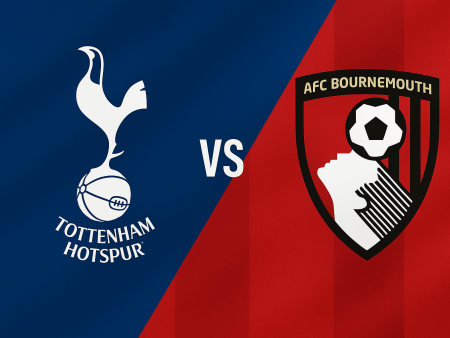The Struggles of German Clubs in European Football: An In-Depth Analysis
The Bundesliga stands among Europe’s elite football leagues, known for its passionate supporters, world-class stadiums, and engaging style of play. Yet, despite these strengths, German teams have faced notable challenges in establishing dominance on the European stage over the past decade. With Bayern Munich often flying the Bundesliga flag alone deep into European competitions, questions have arisen about why the league as a whole has struggled to match the collective success of its counterparts in England and Spain.
Recent European Performance: Bundesliga in the Spotlight
In recent years, the Bundesliga has consistently ranked among the top leagues in the UEFA club coefficient rankings, boasting storied teams like Bayern Munich, Borussia Dortmund, and RB Leipzig. However, this reputation hasn't always translated into European success. Since Bayern’s Champions League triumph in the 2019-20 season, German clubs have often exited the competition earlier than expected. Both Bayern and Dortmund, for instance, were eliminated at the quarter-final stage in the following campaign, while Leipzig couldn't progress beyond the Round of 16.
A look at the last decade shows that Bundesliga clubs, as a collective, have reached the latter phases of European tournaments less frequently than clubs from England, Spain, or even Italy. Ligue 1 in France is the only other major league with a similarly modest record during this period.
The Importance of Widespread Competitiveness
European football’s most successful leagues benefit from depth and competitiveness across several clubs. In Spain’s La Liga, it’s not uncommon to see multiple teams contesting semi-finals or even all-Spanish finals. The English Premier League has also reasserted its dominance recently, placing multiple teams in the semi-finals and finals of both the Champions League and Europa League, highlighted by all-English showdowns in 2019 and 2021.
In contrast, German dominance in Europe remains largely tied to Bayern Munich, while other clubs struggle to consistently make deep runs. For the Bundesliga to rival the influence of the Premier League or La Liga, greater collective strength and resilience are needed.
Talent Drain: The Continual Loss of Top Players
A significant factor undermining Bundesliga success in Europe is the regular departure of elite talent from German clubs. Aside from Bayern Munich, other Bundesliga teams routinely lose their best players either to Bayern itself or to top clubs across Europe.
Bayern Munich has consistently strengthened its squad by acquiring key players from domestic rivals, including high-profile transfers like Robert Lewandowski, Mats Hummels, Mario Gotze (all from Borussia Dortmund), and Leon Goretzka and Manuel Neuer (from Schalke). This not only fortifies Bayern’s dominance but simultaneously weakens the league’s overall competitiveness.
Other Bundesliga clubs face similar challenges abroad. Borussia Dortmund, RB Leipzig, and others have seen stars such as Ilkay Gundogan, Timo Werner, and Pierre-Emerick Aubameyang move to English sides, while promising young talents like Ousmane Dembele and Henrikh Mkhitaryan have pursued opportunities elsewhere with mixed results. Often, these players depart for teams that are not substantially better placed to offer consistent European success.
This trend results in Bayern Munich remaining Germany’s main contender in Europe, while other clubs struggle to rebuild and compete at the highest level.
Physicality: Matching the Powerhouses
German teams have long been admired for their high-tempo pressing and tactical organization, but pure physicality remains a challenge for most Bundesliga clubs outside Bayern Munich. Spanish giants like Real Madrid and Atletico Madrid, as well as English teams, combine technical prowess with a gritty, robust approach to the game, often outmuscling German rivals in tightly contested European knockouts.
While new contenders such as Eintracht Frankfurt and VfL Wolfsburg bring greater physical presence, these teams still need to match this strength with technical quality and tactical maturity if they hope to advance further in Europe.
Mental Barriers and Experience: Overcoming Imposter Syndrome
Another hurdle facing German clubs is a lack of belief and big-match experience. In recent knockout ties, Borussia Dortmund and RB Leipzig, clubs filled with promising young talent, have looked hesitant on the grand European stage. This psychological barrier, sometimes described as "imposter syndrome," has led to missed opportunities and conservative approaches when the stakes are highest.
European success often hinges on the ability to perform under pressure, with teams like Jose Mourinho’s Porto or Inter Milan renowned for blending experience with tactical discipline. Bundesliga sides, laden with emerging stars such as Jadon Sancho, Erling Haaland, and Dayot Upamecano, often lack leaders with the veteran knowledge required to prevail in these intense situations.
Looking Ahead: What Needs to Change?
For the Bundesliga to close the gap with Europe’s top leagues, several key steps are necessary:
- Retain top players longer and build club identities around core talents.
- Reduce the trend of domestic talent moving to rivals or abroad by emphasizing the league’s own competitiveness.
- Invest in more experienced leaders to guide youthful squads through high-pressure European fixtures.
- Blend German teams’ trademark tactical innovation with the physical resilience and psychological confidence of Europe’s best sides.
The task will not be easy, and until such changes take root, Bayern Munich may continue to be the Bundesliga’s sole regular threat in European competitions. However, with targeted recruitment, policy shifts, and a renewed belief across clubs, German teams have the potential to restore pride and achieve lasting success on the continental stage.













